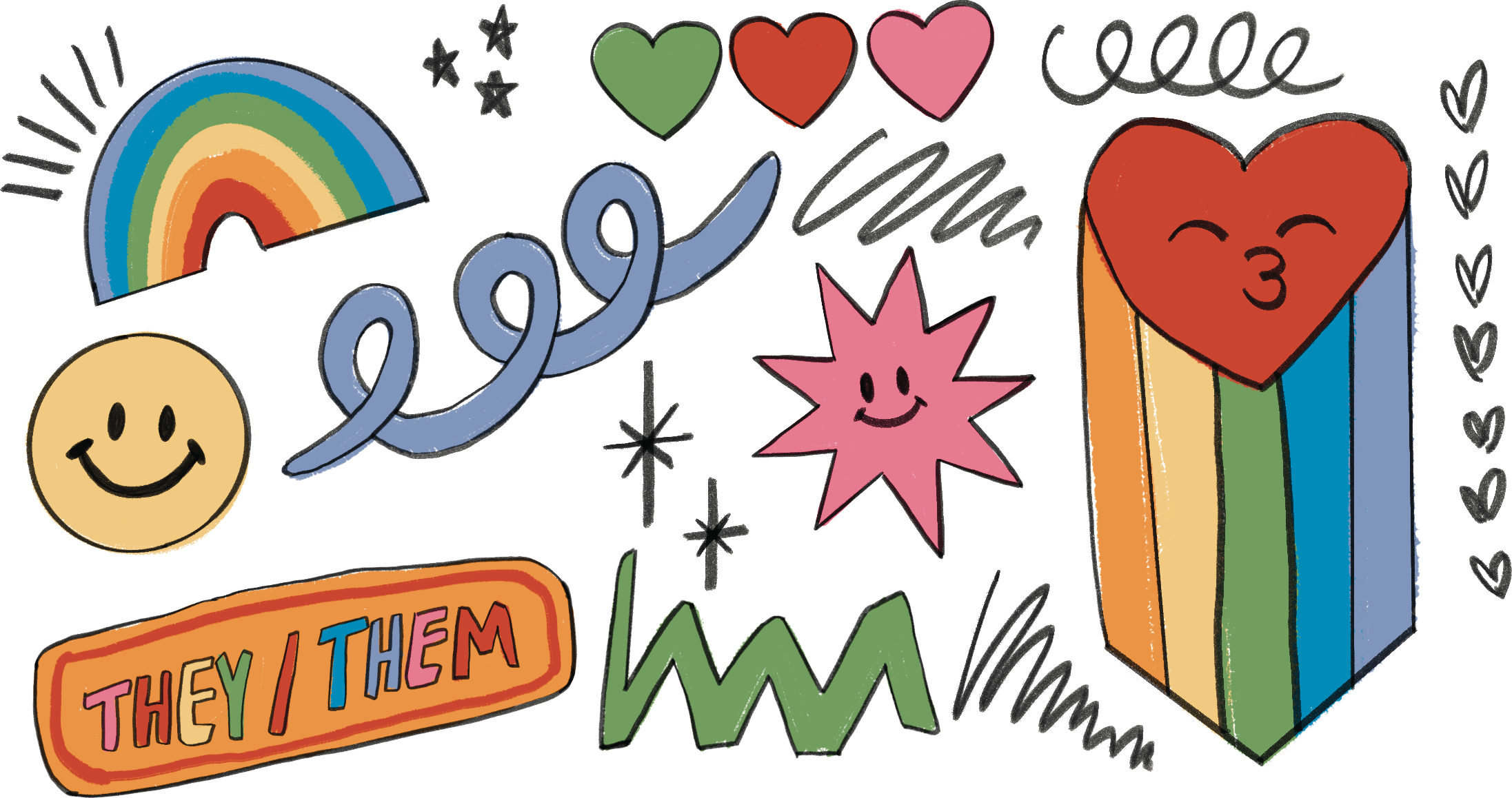What is a 'Good' Ally?
Illustrated by Kimi Moana (she/her)
Coming out is a stressful experience on its own, the responsibility to educate your friends and family is not a burden that should fall on you. The stress of figuring out how to identify yourself, how to tell other people and how to make yourself obvious to fellow members of the community is enough of a weight to carry.
What it means to be an ally is a complicated issue, some people might consider themselves allies simply for not being shitty, ignorant people. Being a meaningful ally is more than just putting a rainbow pin on your clothes when it’s convenient. However, it’s also important to strike a balance between listening and offering support without pushing yourself into a space that isn’t yours to take up.
As Steph, a queer Wellington based tattoo artist put it; “Being a good ally is just about shutting the fuck up and listening.”
To a certain extent, this is true. Rainbow Youth offers a resource on their website which can help people understand how to support members of the Rainbow community by using inclusive language and creating a supportive space. A lot of the guidance is basically to let queer people open up the conversation themselves, using intentionally vague language that doesn’t assume someones identity, and offering support when it’s needed.
When I talked to members of the community, defining what a ‘good’ ally is, proved to be a difficult thing to nail down.
My good friend Jean was thrown by the question.
“Why is this such a hard thing to define? For me I think it means just being normal, don’t be overly performative and don’t say things you know are homophobic. If you’re an ally you should be able to call out your friends or family when they say something homophobic.”
“It’s especially annoying when people are selective on which parts of the queer community they’re comfortable with. Girlies who love a fem gay boy but are uncomfortable around lesbians? Red flag,” she tells Massive.
For some people, the idea of an ally has shifted, all the adversities faced by members of the LGBT+ community mean that it’s not enough to just tolerate our existence. You need to strike a balance between supporting the community, and not speaking over the voices of those impacted by homophobia or transphobia.
My mum has always considered herself a champion of gays. She grew up in the theatre and marched in pride parades when my older brother was little. Her sister is a lesbian and she has always supported her wholeheartedly. She never identified herself as an ‘ally’ because she considered it an unnecessary title - obviously she supported her family and peers, there was never any question.
When I came out to her, something seemed to shift. It wasn’t enough for her to just stand on the sidelines and support the community, she wanted to be an active ally. She would ask me questions about language and different identities - which I would do my best to answer.
In an ideal world everyone would be like this, making an effort to educate yourself on issues that impact a community you claim to support. In New Zealand we saw the call for allyship in motion, when submissions opened on the Conversion Practices Bill. Members of the community called on so-called ‘allies’ to actually buck up and help change the lives of queer people across the country impacted by such awful practices. This call was heard and there was a record-breaking number of submissions - largely due to activism led by Shaneel Lal on social media. This movement is evidence that being a meaningful ally is not just tolerating the existence of the community, but coming out in support to help create meaningful change.
Josh Stewart is a member of the community and shared some wise words about what a good ally looks like to them. Initially he told me that being a good ally is buying him iced coffee, liking Jojo Siwa unironically and walking fast. Then he shared with me some more serious points about allyship.
“Having your pronouns in your bio and being pronoun affirming is important, as well as being supportive all year round not just during pride month. Recognising that the queer experience will always be fundamentally different than their own and being okay with that,” Josh says.
In terms of how to create an inclusive space for queer people, Josh made some good points about being supportive without overstepping boundaries.
“Don’t try and speak for gay people. Try to avoid coopting queer mannerisms and language and very importantly, support the T in LGBTQ and don’t be picky about which parts of the community you support.”
From the people I’ve spoken to, I’ve realised that an important part of meaningful allyship is standing with all of us - trans folk, people who don’t label themselves, people who use fluid pronouns. No one is expecting you to get all of the language and terminology right all of the time, but if you only stand with some of us, then you stand with none of us.
If you’re not a member of the queer community, think about what you can do to be supportive. Listen, educate yourself and try your best to create inclusive environments for all your queer peers, friends or family.
If you are a member of the queer community, you deserve to feel proud, respected, and loved.


